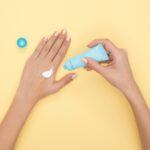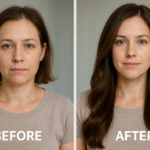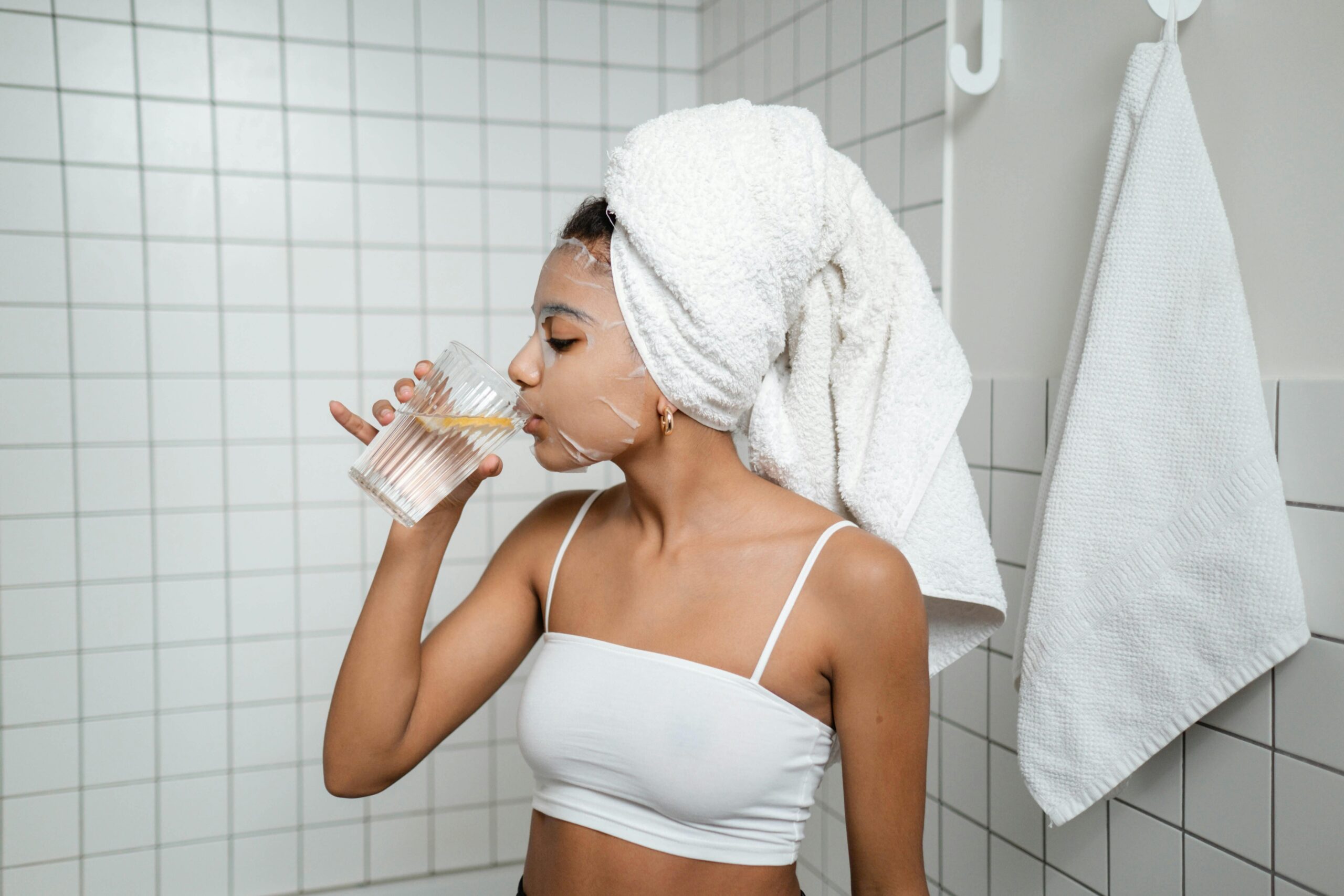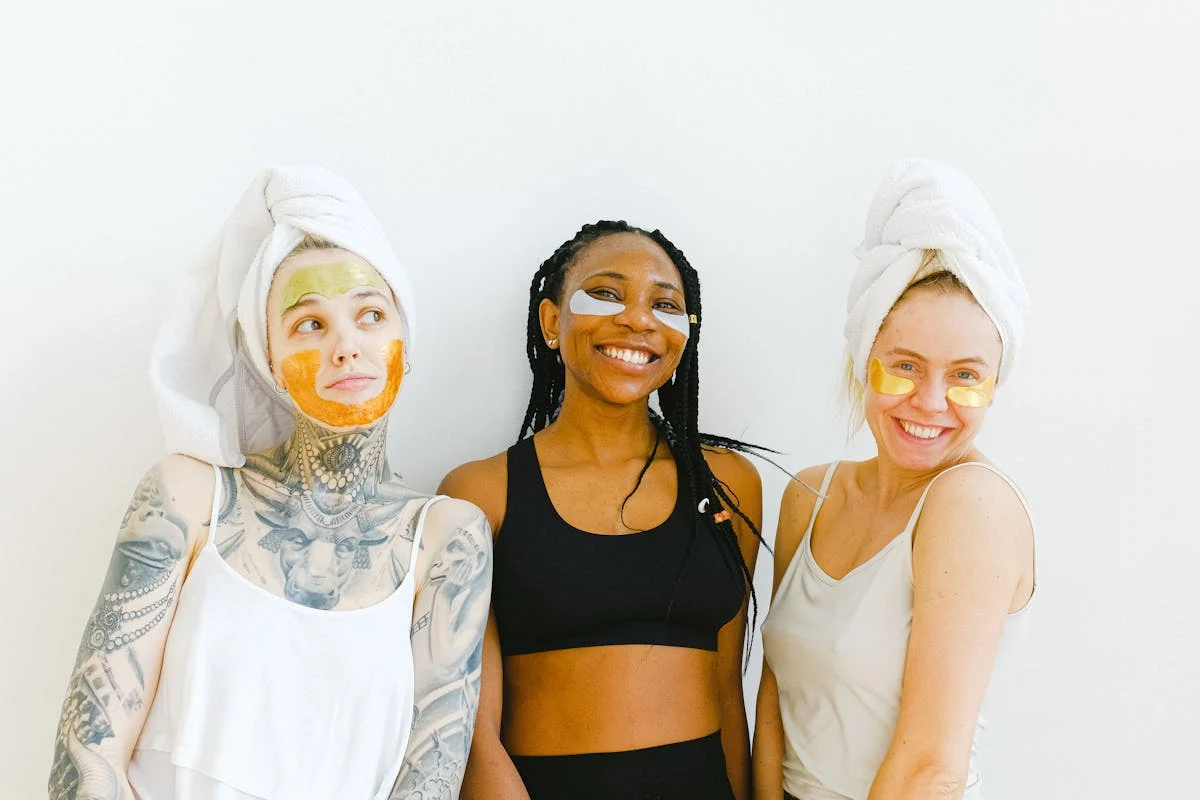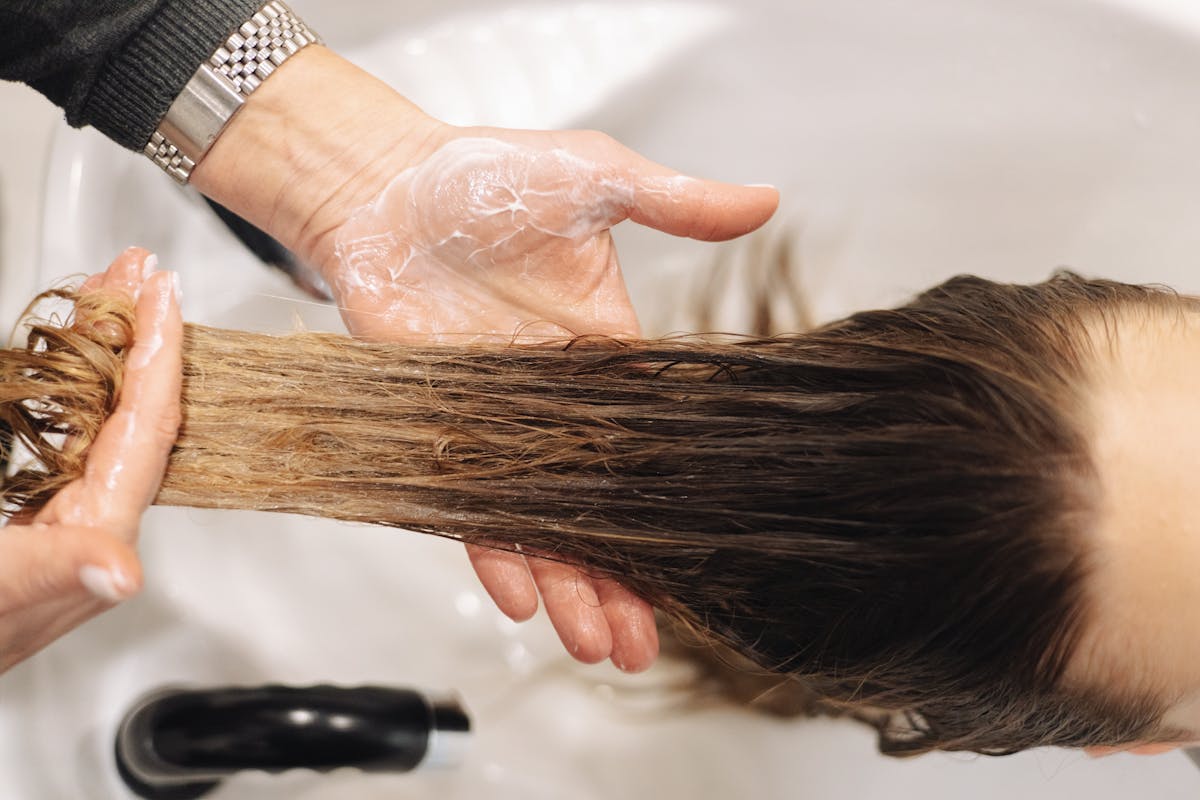The Glass Half Full Truth About Your Skin
Picture this: You’re standing in front of the mirror at 7 AM, squinting at your reflection like you’re trying to decode ancient hieroglyphics. Your skin looks about as vibrant as yesterday’s leftover pizza, and you’re wondering if that expensive serum you splurged on was just fancy water in a pretty bottle.
Here’s the plot twist – maybe what your skin needs is actual water. Not the kind that costs more per ounce than champagne, but the stuff that flows right out of your kitchen tap.
I know, I know. It sounds almost too simple to be true. But stick with me here, because hydration and skin health share a connection that’s more intimate than your relationship with your morning coffee.
The Science Behind the Glow: How Water Works Its Magic
Let’s delve into the details of why water and skin health are essentially best friends forever. Your skin is your body’s largest organ – yeah, it’s technically an organ, which makes it sound way more important than we usually give it credit for.
Think of your skin cells like tiny water balloons. When they’re properly hydrated, they’re plump, bouncy, and radiant. When they’re dehydrated? They shrivel up like raisins, creating that dull, tired look that no amount of concealer can fix.
Water intake for skin isn’t just about drinking your eight glasses a day (though that’s a good start). It’s about understanding how hydration affects everything from your skin’s ability to heal itself to its natural defense mechanisms.
The Cellular Level: Where the Magic Happens
Your skin cells are roughly 64% water. When you’re properly hydrated, these cells can:
- Maintain their structural integrity
- Transport nutrients efficiently
- Eliminate waste products effectively
- Produce collagen and elastin naturally
- Repair damage from environmental stressors
When you’re dehydrated, this entire system starts to break down. It’s like trying to run a car without oil – technically possible, but you’re not going to get very far.
10 Signs Your Skin is Crying Out for Water
Before we delve into the solutions, let’s discuss the warning signs. Dehydration and skin problems often go hand in hand, but the symptoms aren’t always obvious.
1. The Pinch Test Tells All
Here’s a quick test: gently pinch the skin on the back of your hand and release. If it snaps back immediately, you’re golden. If it takes its sweet time returning to normal, your skin is sending you an SOS signal.
2. Dullness That Won’t Quit
Hydrated skin has a natural luminosity that no highlighter can replicate. When you’re dehydrated, your skin loses that inner glow and starts looking flat and lackluster.
3. Fine Lines Playing Peek-a-Boo
Those little lines around your eyes and mouth? They’re often the first to appear when your skin lacks moisture. Think of them as your skin’s way of waving a tiny white flag.
4. Rough Texture City
Properly hydrated skin feels smooth and supple. Dehydrated skin feels rough, flaky, and about as appealing as sandpaper.
5. Breakouts in Unexpected Places
Here’s a counterintuitive one: Dehydration can cause acne. When your skin is parched, it overproduces oil to compensate, leading to clogged pores and breakouts.
6. Sensitivity Overload
Dehydrated skin becomes more sensitive to everything – your usual products, the weather, even your pillowcase. It’s like your skin’s protective barrier is on vacation.
7. Slow Healing
Cuts, blemishes, and other skin issues take longer to heal when you’re dehydrated. Your skin needs water to regenerate and repair itself efficiently.
8. Tightness That Won’t Budge
That feeling like your skin is too small for your face? That’s dehydration talking. Skin hydration is crucial for maintaining elasticity and comfort.
9. Dark Circles with Attitude
While genetics plays a role, dehydration can make dark circles more prominent. The skin under your eyes is already thin; when it’s dehydrated, it becomes even more translucent.
10. Products That Don’t Seem to Work
If your skincare routine suddenly seems ineffective, dehydration might be the culprit. Products work better on properly hydrated skin.
The Water-Skin Connection: More Than Just H2O
Now, let’s address the elephant in the room: Does drinking water help clear skin? The answer is both yes and no, depending on your specific situation.
The Yes Side of the Equation
Drinking water for skin benefits include:
- Improved circulation, which delivers nutrients to skin cells
- Better toxin elimination through proper kidney function
- Enhanced skin barrier function
- Reduced inflammation
- Improved healing and regeneration
The “It’s Complicated” Reality
Water alone isn’t a magic bullet. If you’re dealing with hormonal acne, genetic predispositions, or other underlying issues, chugging water won’t solve everything. But it’s a crucial piece of the puzzle.
How Much Water for Healthy Skin? The Truth About the 8-Glass Rule
The classic “8 glasses of water a day” rule is like that friend who gives well-meaning but slightly outdated advice. It’s not wrong, but it’s not the whole story either.
The Real Formula
How much water for healthy skin depends on several factors:
- Your body weight (aim for about half your body weight in ounces)
- Your activity level
- Your climate
- Your caffeine and alcohol intake
- Your overall health
Quality Over Quantity
It’s not just about the amount – the quality of your water matters too. Filtered water removes chlorine and other chemicals that can irritate sensitive skin. If you’re wondering about the best drinks for skin hydration, plain water is still king, but herbal teas, coconut water, and water-rich foods can contribute to your daily intake.
| Hydration Source | Hydration Level | Skin Benefits |
| Plain Water | Excellent | Direct cellular hydration |
| Herbal Tea | Good | Antioxidants + hydration |
| Coconut Water | Good | Electrolytes + hydration |
| Fresh Fruit | Moderate | Vitamins + water content |
| Sports Drinks | Moderate | Electrolytes (but high sugar) |
The Inside-Out Approach: Foods That Hydrate Your Skin
While drinking water is crucial, foods high in water for skin can provide additional hydration plus bonus nutrients. It’s like getting a two-for-one deal on skin health.
Water-Rich Superstars
Watermelon (92% water): Contains lycopene, which protects against UV damage.
Cucumbers (96% water): Silica content supports collagen production.
Tomatoes (94% water): Lycopene again, plus vitamin C .
Celery (95% water): Contains sodium, which helps maintain fluid balance.
Zucchini (95% water): Vitamin A for skin repair
The Hydration Helpers
These foods might not be water-heavy, but they support your body’s hydration efforts:
- Avocados: Healthy fats that support skin barrier function
- Nuts and seeds: Vitamin E for skin protection
- Leafy greens: Minerals that support fluid balance
- Fatty fish: Omega-3s that reduce inflammation

External Hydration: The Other Half of the Equation
Here’s where things get interesting. Water vs moisturizer for skin isn’t an either/or situation – it’s both/and. Think of internal hydration as filling up your skin’s water tank, while external hydration is like applying a protective seal to keep that moisture locked in.
The Skin Barrier Breakdown
Your skin has a protective barrier made up of dead skin cells held together by lipids (fats). This barrier is like a brick wall – the cells are the bricks, and the lipids are the mortar. When this barrier is compromised, water escapes, leading to dehydration and irritation.
Topical Hydration Heroes
Hyaluronic acid: Can hold up to 1,000 times its weight in water.
Glycerin: Draws moisture from the air to your skin.
Ceramides: Restore and maintain the skin barrier.
Squalane: Mimics your skin’s natural oils
The Timeline: How Long Does It Take to See Results?
This is probably the question I get asked most: How long does it take to see skin improvements after increasing water intake?
The Short-Term Wins (1-3 Days)
- Reduced puffiness
- Slight improvement in skin texture
- Better product absorption
The Medium-Term Gains (1-2 Weeks)
- Noticeable improvement in skin elasticity
- Reduced appearance of fine lines
- More even skin tone
The Long-Term Transformation (1-3 Months)
- Significant improvement in overall skin health
- Better healing and regeneration
- Reduced sensitivity and irritation
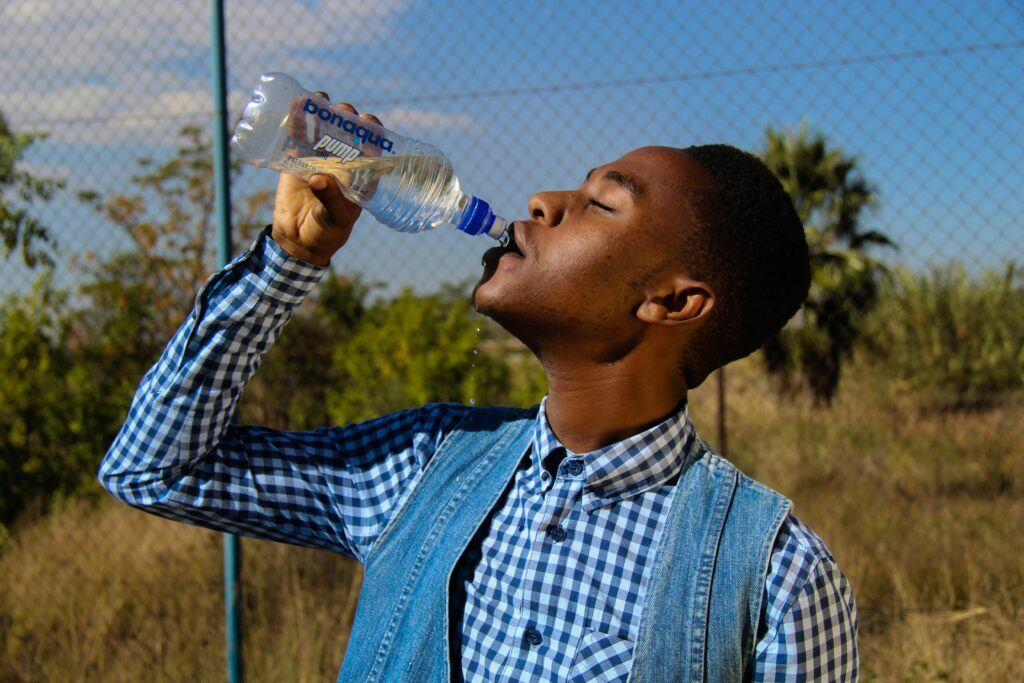
Common Hydration Mistakes That Sabotage Your Skin
Even with the best intentions, it’s easy to make mistakes that undermine your hydration efforts. Let me share some of the most common pitfalls I see:
Mistake #1: Waiting Until You’re Thirsty
By the time you feel thirsty, you’re already dehydrated. It’s like waiting until your car is completely out of gas before stopping at a gas station – technically possible, but not ideal.
Mistake #2: Drinking It All at Once
Chugging a liter of water and calling it a day doesn’t work. Your body can only absorb so much at once; the rest just gets flushed out (literally).
Mistake #3: Ignoring Your Skin Type
Hydration for sensitive skin requires a different approach than hydration for oily skin. One size doesn’t fit all when it comes to skincare.
Mistake #4: Overlooking Environmental Factors
Air conditioning, heating, wind, and sun all affect your skin’s hydration levels. You might need to adjust your routine based on the season and your environment.
Special Considerations: Hydration for Different Skin Types
Dry Skin: The Obvious Candidate
Water for dry skin relief is crucial, but it’s not just about drinking more. Dry skin types need both internal and external hydration, plus products that help lock in moisture.
Key strategies:
- Use a humidifier in your bedroom
- Apply moisturizer to damp skin
- Look for products with ceramides and hyaluronic acid
- Avoid hot showers (they strip natural oils)
Oily Skin: The Surprising Candidate
Here’s a mind-bender: oily skin can still be dehydrated. Dehydration often triggers excess oil production as your skin tries to compensate.
Key strategies:
- Use lightweight, water-based moisturizers
- Don’t skip hydration, thinking it will make you oilier
- Look for products with niacinamide to regulate oil production
- Stay consistent with your routine
Sensitive Skin: The Delicate Candidate
Hydration for sensitive skin requires extra care. Dehydrated sensitive skin is more prone to irritation, redness, and reactions.
Key strategies:
- Choose fragrance-free products
- Introduce new products gradually
- Focus on barrier repair ingredients
- Avoid over-exfoliating
Combination Skin: The Complicated Candidate
Combination skin needs a tailored approach – different areas might need different levels of hydration.
Key strategies:
- Use different products for different areas
- Pay attention to how your skin responds seasonally
- Don’t treat your whole face as one skin type
- Consider using a hydrating toner all over, then targeted treatments
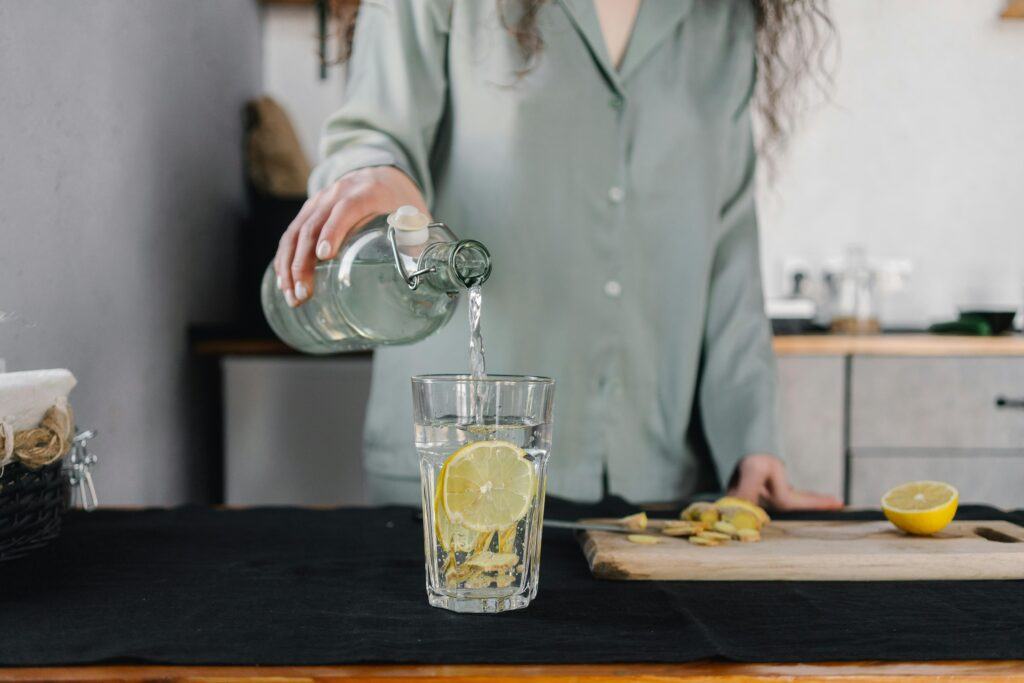
The Role of Hydration in Skin Conditions
Acne and Hydration: The Complex Relationship
Can dehydration cause acne? The relationship is more nuanced than a simple yes or no. While dehydration doesn’t directly cause acne, it can contribute to the problem by:
- Disrupting the skin barrier
- Triggering excess oil production
- Slowing down healing
- Increasing inflammation
Eczema and Hydration: The Crucial Connection
For eczema sufferers, proper hydration is non-negotiable. Water and skin barrier function are intimately connected, and a compromised barrier is a hallmark of eczema.
Aging and Hydration: The Fountain of Youth
While hydration won’t stop the aging process, it can significantly slow down the visible signs. Water and skin aging prevention work together by:
- Maintaining skin elasticity
- Supporting collagen production
- Improving cellular turnover
- Reducing inflammation
Professional Treatments That Support Hydration
Sometimes, topical products and lifestyle changes need backup. Here are some professional treatments that can boost your skin’s hydration levels:
Hydrafacials
These treatments combine cleansing, exfoliation, and hydration in one session. They’re particularly effective for dehydrated skin.
Microneedling
This treatment stimulates collagen production and improves product absorption, making your hydrating products more effective.
LED Light Therapy
Certain wavelengths of light can reduce inflammation and support cellular repair, both of which contribute to better hydration.
Chemical Peels
When done correctly, gentle chemical peels can improve skin texture and help products penetrate better.
The Technology Factor: Apps and Tools for Hydration
We live in a digital age, so why not use technology to support your hydration goals?
Hydration Apps
Apps like WaterMinder, Hydro Coach, and MyWater can help you track your daily water intake and send reminders.
Smart Water Bottles
Bottles like the HidrateSpark track your intake and light up when it’s time to drink more water.
Skin Analysis Apps
While not perfect, apps that analyze your skin can help you track changes over time and identify when your skin needs more hydration.
Seasonal Hydration: Adapting to Change
Your skin’s hydration needs change with the seasons, just like your wardrobe.
Summer Hydration
- Increase water intake due to heat and sweat
- Use lighter, gel-based moisturizers
- Don’t forget that air conditioning can be dehydrating
- Reapply hydrating products after swimming
Winter Hydration
- Combat dry indoor air with humidifiers
- Use richer, cream-based moisturizers
- Pay extra attention to hands and lips
- Don’t decrease water intake just because it’s cold
Spring and Fall Transitions
- Gradually adjust your routine as the weather changes
- Pay attention to how your skin responds
- Don’t make drastic changes all at once
- Consider using different products for different times of day
The Bottom Line: Making Hydration Work for You
After diving deep into the world of hydration and skin, here’s what I want you to remember: there’s no one-size-fits-all solution. Your skin is as unique as you are, and what works for your friend might not work for you.
Your Hydration Action Plan
- Start with the basics: Aim for adequate water intake throughout the day
- Listen to your skin: Pay attention to how it feels and looks
- Be patient: Skin changes take time to show
- Customize your approach: What works for others might not work for you
- Stay consistent: Sporadic efforts won’t give you lasting results
The Reality Check
Hydration and skin health are connected, but they’re not a magic cure-all. If you’re dealing with persistent skin issues, it’s worth consulting with a dermatologist or skincare professional. Sometimes, the solution is more complex than just drinking more water.
But here’s the beautiful thing about focusing on hydration: even if it’s not the complete answer to your skin concerns, it’s unlikely to hurt. Proper hydration supports your overall health, which includes your skin health.
Final Thoughts: The Glow-Up is Real
I’ve spent years watching people transform their skin through better hydration habits. It’s not always dramatic – sometimes it’s subtle improvements that add up to significant changes over time.
The key is to approach hydration holistically. It’s not just about chugging water (though that’s important). It’s about understanding how your lifestyle, environment, and skin type all play into the equation.
Remember, glowing skin isn’t just about looking good – it’s about feeling confident and comfortable in your skin. And if better hydration can help you get there, isn’t it worth raising a glass (of water) to that?
Your skin is with you for life, so treat it well. Give it the hydration it needs, be patient with the process, and don’t forget to celebrate the small wins along the way.
After all, the best skincare routine is the one you’ll stick to. And if that routine includes prioritizing hydration – both inside and out – you’re already on the right track.
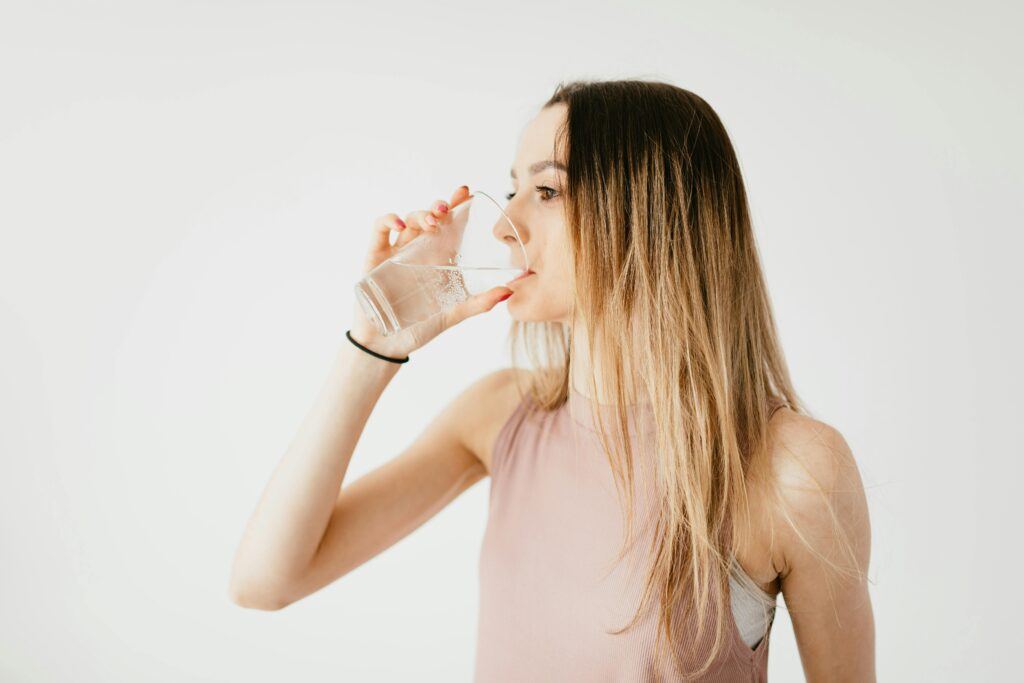
Ready to start your hydration journey? Begin with small, sustainable changes and watch as your skin thanks you for the extra love and attention. Your future self will appreciate the effort.
What’s your biggest hydration challenge? Share your thoughts in the comments below, and let’s continue this conversation about achieving healthier, more radiant skin through better hydration habits.


